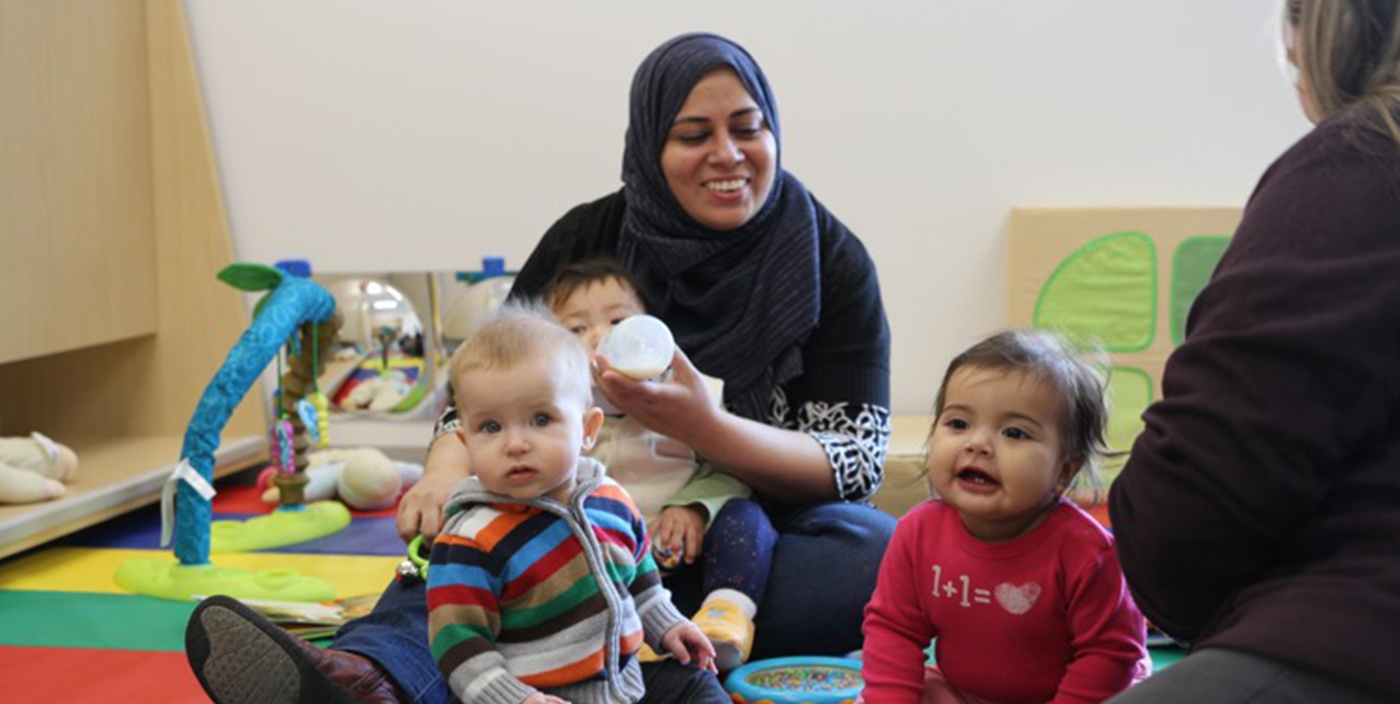Comprehending the Value of Daycare for Your Toddler's Social Advancement and Discovering Knowledge Through Involving Tasks
The value of day care in shaping a toddler's social development and knowing can not be overstated, as it provides a structured setting filled up with appealing activities that are critical for early growth. As we check out the diverse benefits of day care, one have to consider how these foundational experiences influence a child's future social interactions and total growth.

Advantages of Social Interaction
Social interaction plays a critical function in the developing trajectory of toddlers, acting as a structure for necessary social abilities. Engaging with peers allows kids to practice interaction, discover to share their emotions, and create compassion. With shared play and teamwork, they start to recognize social standards, such as taking turns and sharing, which are essential parts of effective interpersonal partnerships.
Moreover, social communications add to cognitive advancement. As toddlers communicate with their peers, they enhance their language abilities, broaden their vocabulary, and boost their capacity to express ideas and sensations. This exchange of ideas promotes critical thinking, as kids find out to negotiate, fix issues, and navigate problems.
Additionally, social interaction advertises emotional regulation. Exposure to different social scenarios assists young children recognize and manage their emotions, ultimately leading to better durability and flexibility. The ability to create relationships and attachments likewise boosts their sense of belonging and self-confidence, which are essential for overall wellness.
Importance of Involving Tasks
Involving tasks are crucial for promoting a stimulating atmosphere that enhances toddlers' social growth. These activities not only astound young kids's attention however likewise promote energetic engagement, allowing them to discover their environments artistically. With play-based knowing, kids develop important abilities such as analytical, collaboration, and compassion, all of which are important for building healthy and balanced connections with peers.
Taking part in engaging tasks, such as group video games, art tasks, and interactive narration, motivates kids to express their sensations and ideas. This expression is essential for psychological knowledge and aids them understand the viewpoints of others. When young children engage in these tasks together, they find out to negotiate duties, share resources, and work together, which are basic aspects of social interaction.
Furthermore, a well-structured environment that includes diverse and revitalizing tasks helps in maintaining kids motivated and focused. This inspiration promotes a love for finding out and expedition, laying the structure for future academic experiences. Inevitably, engaging activities in day care settings are crucial in shaping social skills, preparing kids for successful communications beyond the class, and nurturing their general advancement throughout these formative years.
Developing Interaction Abilities
Efficient interaction skills are essential for toddlers as they browse their early social interactions. In a daycare setting, children are exposed to varied social scenarios that motivate non-verbal and verbal interaction. Talking with peers and caretakers promotes language development, making it possible for toddlers to express their requirements, emotions, and thoughts more effectively.

Furthermore, childcare settings provide possibilities for young children to mimic my explanation and observe communication designs of their adults and peers. This empirical learning is important as kids notice social signs, tone, and body language, which are vital elements of reliable communication.
Fostering Freedom and Self-confidence
As toddlers refine their communication skills, they simultaneously start to discover their independence and build self-confidence in social settings (toddler daycare near me). Daycare offers an organized atmosphere where children can take part in different tasks that encourage autonomy. From choosing their very own activities to taking part in team tasks, these experiences equip toddlers to choose and share themselves
In a childcare setup, youngsters are frequently offered with possibilities to fix problems independently, whether it's figuring out exactly how to share toys or solving disputes with peers. This cultivates crucial thinking and advertises self-direction. In addition, caregivers support this advancement by supplying favorable support and support, aiding kids to browse social interactions with confidence.

Group activities, such as participating games or joint art tasks, promote teamwork and educate kids the value of working together. Via these communications, children learn to interact their ideas and feelings, better enhancing their self-worth and social skills.
Eventually, promoting independence and confidence in daycare not just prepares young children for future social environments but additionally prepares for a resilient attitude, equipping them with necessary life abilities as they remain to grow and learn.
Structure Lifelong Learning Structures
A solid structure for lifelong learning is important for kids, as their early experiences form their mindsets in the direction of education and curiosity. Daycare environments play an essential function in this developmental phase by offering structured possibilities for exploration and involvement. Engaging tasks, such as team play, arts and crafts, and interactive storytelling, boost here are the findings cognitive development while encouraging social interaction.
Through these experiences, kids learn crucial skills such as analytical, communication, and collaboration. They are introduced to the concept of finding out as a pleasurable, joint procedure instead of a duty, which fosters a favorable mindset in the direction of education and learning. In addition, direct exposure to varied viewpoints and peer communications in childcare setups enhances psychological intelligence, promoting compassion and strength.
Caregivers and teachers additionally contribute dramatically to developing this foundation by modeling interest and enthusiasm for understanding. By motivating questions and assisting in discussions, they create a setting where kids really feel risk-free to express themselves and discover originalities. Eventually, the mix of helpful connections and interesting activities in day care settings investigate this site lays the groundwork for a lifelong love of knowing, gearing up toddlers with the skills and way of thinking needed for future scholastic and individual success.
Verdict

The value of day care in forming a young child's social growth and understanding can not be overstated, as it supplies an organized environment filled with appealing tasks that are essential for very early development.Social interaction plays a crucial function in the developmental trajectory of toddlers, offering as a structure for important social abilities. When kids engage in these tasks together, they find out to negotiate duties, share resources, and collaborate, which are fundamental facets of social interaction.
Ultimately, engaging tasks in childcare setups are essential in shaping social abilities, preparing kids for effective communications beyond the classroom, and supporting their total advancement during these developmental years.
Inevitably, the benefits of engaging tasks in day care settings play a significant function in preparing young children for future social communications and challenges. daycare near me for infants.